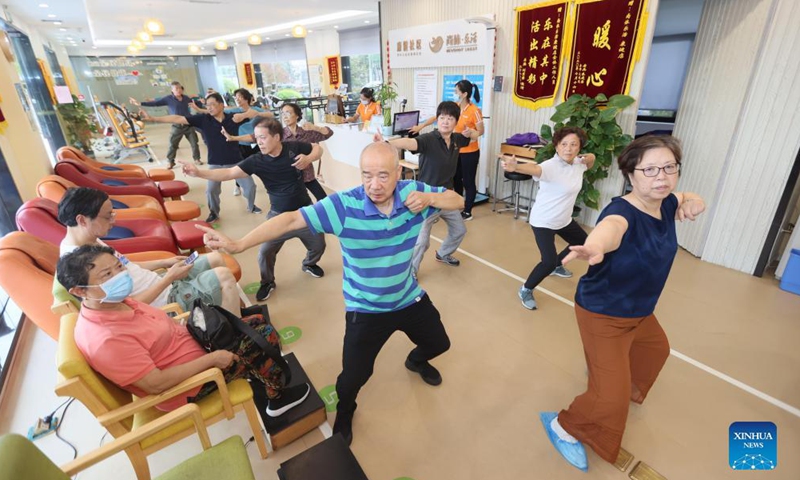
Elders exercise at a senior care center in Xuhui District of Shanghai, east China, Oct. 13, 2021.Photo:Xinhua
After more than 30 years of implementing its one-child policy, China finds itself with too many elders to care for and fewer caregivers to provide it. Now Beijing, the capital city of China, is leading in creative efforts to solve this growing demographic dilemma by implementing "time banking" aimed at encouraging volunteers to take care of the elderly in exchange for credits for their old age.
The Beijing Municipal Civil Affairs Bureau released the implementation plan of "time banking," which will come into effect on June 1, 2022, according to the local authorities on Wednesday.
The time banking is the mutual assistance model in which volunteers offer services to older citizens in exchange for credits they can tap when their time comes.
"Time banking" enables volunteers to accumulate "coins" by providing services to the elderly, and 1 hour of service can be exchanged for 1 "coin." "Time coins" can be exchanged for credits they can tap at an appropriate time in the future. For instance, 10,000 "time coins" can be moved into public pension institutions.
According to a report from Bloomberg, a Japanese woman developed the time banking concept in the 1970s, but it never really caught on. Now China is turning to this mutual assistance model to alleviate a shortage of caregivers in cities like Beijing, Shanghai, and Guangzhou.
Chinese aged 60 and above already account for one-fifth of the nation's population, a number that's expected to almost double by 2050.
Beijing's time banking is an innovation in the model of mutual benefit, aiming to encourage and support the whole society to provide voluntary services for the elderly, and promote the sustainable circulation of resources generated by such services among individuals, families, and society.
Meanwhile, the time banking information management platform will adopt Internet plus, big data, artificial intelligence and other means to accurately connect supply and demand and conduct "intelligent" supervision of the service.




